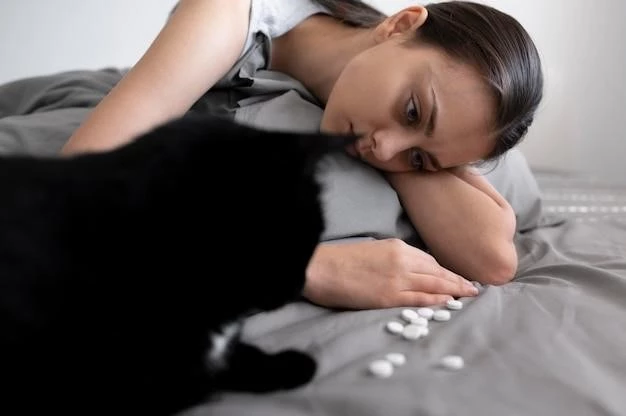Overview of Poliosophobia
Poliosophobia, also known as the fear of polio, is a specific phobia that affects individuals who are overly anxious about contracting the disease. Polio is a highly infectious viral illness that can lead to permanent paralysis or even death. While the incidence of polio has significantly reduced due to vaccines, poliosophobia still exists among some individuals.
Definition and Background
Poliosophobia is defined as the irrational fear of contracting poliomyelitis, a viral disease that can lead to paralysis. This specific phobia can significantly impact individuals, affecting their daily lives and mental well-being. Understanding the background of poliosophobia involves recognizing the historical context of polio outbreaks and the subsequent development of vaccines to combat the disease’s spread.
Understanding Poliosophobia
Poliosophobia is defined as the irrational fear of contracting poliomyelitis, a viral disease that can lead to paralysis. Individuals with this phobia experience excessive anxiety about the possibility of acquiring polio.
Symptoms of Poliosophobia
Individuals with poliosophobia may experience symptoms such as heightened anxiety, obsessive thoughts about polio contraction, avoidance of situations related to polio, physical reactions like sweating, trembling, and increased heart rate when exposed to triggers.
Causes of Poliosophobia
The causes of poliosophobia can be attributed to various factors, including traumatic experiences related to polio outbreaks, genetic predisposition to anxiety disorders, learned behavior from family members or peers, and underlying medical conditions that heighten health-related anxieties. Additionally, media coverage of infectious diseases and misinformation can exacerbate fear and contribute to the development of poliosophobia.
Impact of Poliosophobia
Individuals experiencing poliosophobia may face significant challenges in their daily lives due to the fear of contracting polio. This fear can impact their mental well-being, relationships, work performance, and overall quality of life, leading to heightened anxiety and stress levels.
Psychological Effects
Individuals with poliosophobia may experience psychological effects such as heightened anxiety, obsessive thoughts, avoidance behaviors, feelings of dread, and intrusive fears related to contracting polio. These psychological manifestations can significantly impact their mental well-being and daily functioning.
Physical Manifestations
The physical manifestations of poliosophobia can include sweating, trembling, increased heart rate, shortness of breath, muscle tension, and other somatic symptoms when individuals are confronted with stimuli or situations related to the fear of contracting polio. These physical reactions are the body’s response to the anxiety and stress associated with poliosophobia.
Treatment Options for Poliosophobia
Trusted treatment options are available to address the fear of contracting Poliomyelitis. Effective therapies and techniques can help individuals overcome the debilitating impact of this phobia and regain control over their lives.
Psychotherapy for Poliosophobia
Psychotherapy is a trusted treatment option for poliosophobia, focusing on addressing the underlying fears, anxieties, and thought patterns associated with the phobia. Therapists use cognitive-behavioral techniques to help individuals overcome their fear of contracting polio and develop effective coping strategies to manage their symptoms.
Exposure Therapy
Exposure therapy is an effective treatment for poliosophobia that involves gradual exposure to the fear-triggering stimuli related to contracting polio. By facing these fears in a controlled setting with the support of a therapist, individuals can learn to confront and overcome their phobia, leading to reduced anxiety and improved quality of life.
Coping Strategies for Poliosophobia
Effective coping strategies can help individuals manage the fear of contracting Poliomyelitis and improve their quality of life. By employing various techniques, individuals can address their phobia and enhance their overall well-being.
Relaxation Techniques
Relaxation techniques are beneficial for individuals struggling with poliosophobia, as they can help reduce anxiety levels and promote a sense of calmness. Methods such as deep breathing, progressive muscle relaxation, and guided imagery can assist in managing stress and alleviating the symptoms associated with the fear of contracting polio.
Mindfulness Practices
Mindfulness practices offer individuals suffering from poliosophobia techniques to cultivate present-moment awareness and focus, helping them manage anxiety and intrusive thoughts related to the fear of contracting polio. By incorporating mindfulness into their daily routines, individuals can enhance their emotional well-being and develop resilience against their phobia.

Addressing Poliosophobia in Daily Life
Implementing strategies to address the fear of contracting Poliomyelitis can significantly improve daily life quality. By utilizing coping mechanisms and seeking appropriate support, individuals can effectively manage poliosophobia and mitigate its impact on their well-being.
Support Systems and Resources
Establishing reliable support systems and accessing appropriate resources can be instrumental in managing poliosophobia effectively on a daily basis. Connecting with counselors, support groups, and educational materials can provide individuals with the necessary guidance and information to address their fear of contracting polio.
Lifestyle Modifications
Introducing lifestyle modifications can be beneficial for individuals managing poliosophobia in their daily lives. Adjusting routines, incorporating regular exercise, maintaining a balanced diet, practicing stress-relief techniques, and engaging in fulfilling activities can contribute to overall well-being and a sense of control over the fear of contracting polio.

Overcoming Poliosophobia
If you are ready to put the fear of contracting Poliomyelitis behind you, there are trusted and effective treatment options available. Overcoming poliosophobia is possible, and with the right support and strategies, you can regain control over your life and mental well-being.
Self-Help Strategies
Implementing self-help strategies can be empowering for individuals dealing with poliosophobia. Techniques such as deep breathing exercises, positive affirmations, gradual exposure to fears, and mindfulness practices can aid in managing and eventually overcoming the fear of contracting polio.
Seeking Professional Help
Seeking professional help is crucial for individuals struggling with poliosophobia. Therapists specializing in phobia treatment can provide personalized strategies and support to help individuals overcome their fear of contracting polio. Professional guidance can significantly enhance the success of managing and ultimately conquering poliosophobia.
